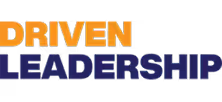Leadership Courses in Seattle, WA


Leadership Training Leadership Courses in Seattle, WA
Strong leadership is a competitive advantage in Seattle’s fast-moving business environment. Whether you lead a startup scaling rapidly across the Puget Sound, a nonprofit serving diverse communities, or a department inside a global tech firm, targeted leadership training closes the gap between potential and consistent performance. These leadership courses in Seattle, WA are designed for decision-minded professionals ready to move from theory to measurable change: clearer communication, stronger influence, better team dynamics, and sustained execution.
Course Levels and Core Objectives
We offer structured pathways from beginner to advanced so individuals and teams progress with clarity and measurable benchmarks.
- Beginner Leadership Essentials
- Objective: Build foundational skills for new managers and emerging leaders.
- Modules: effective communication, giving and receiving feedback, time and priority management, psychological safety, basic conflict navigation.
- Outcomes: clearer one-on-one coaching, practical meeting management, reduced role confusion.
- Intermediate Leadership Development
- Objective: Expand influence and team performance for mid-level leaders.
- Modules: situational leadership, influence and persuasion, performance coaching, decision frameworks, team dynamics and norms.
- Outcomes: higher team engagement, more consistent goal attainment, improved cross-functional collaboration.
- Advanced and Executive Leadership
- Objective: Strategic leadership and culture shaping for senior leaders and high-potentials.
- Modules: organizational influence, culture design, change leadership, resilient decision-making, developing leaders at scale.
- Outcomes: clearer strategic alignment, stronger leadership pipelines, measurable cultural shifts.
Across all levels, specific module topics include communication, influence, team dynamics, conflict resolution, decision making, and performance management—each taught through experiential methods to ensure immediate on-the-job application.
Delivery Options and Scheduling
Courses are available in formats designed for Seattle organizations and dispersed teams:
- In-person sessions
- Local delivery in Seattle-area venues or on-site at your workplace.
- Useful for immersive retreats, cohort bonding, and hands-on simulations.
- Virtual live workshops
- Synchronous modules scheduled to accommodate Pacific Time zones, ideal for remote or geographically distributed teams.
- Mixes breakout labs, facilitator-led simulations, and digital reflection tools.
- Hybrid programs
- Combine on-site intensives with ongoing online modules for durable skill development.
- Works well for organizations with hybrid work models common in Seattle’s tech and nonprofit sectors.
Scheduling is flexible: multi-day intensives, weekly cohorts, or modular half-day sessions spread over several weeks. Cohort size and cadence can be tailored to maximize engagement while balancing operational needs.
Assessment and Learning Process
Training begins with diagnostics so the experience targets real gaps and priorities rather than generic content.
- Pre-course assessment
- Surveys, role-specific interviews, and optional 360 evaluations establish baseline behaviors and development priorities.
- Experiential learning
- Practice-based exercises, simulations, and real-time feedback replicate workplace pressures and accelerate skill transfer.
- Action plans and accountability
- Each participant leaves with a personalized development plan and measurable goals to implement immediately.
- Follow-up and reinforcement
- Post-course reinforcement (micro-learning, coaching check-ins, peer cohorts) ensures behaviors stick.
This process aligns with modern adult learning principles and mirrors approaches used in high-performance environments to produce repeatable results.
Learning Outcomes and Measurable Impact
Participants typically achieve quantifiable improvements in areas that matter to Seattle organizations:
- Improved communication clarity across hybrid teams, reducing misalignment and redundant work.
- Increased direct reports engagement and retention through improved coaching and feedback rhythms.
- Faster decision cycles and reduced escalation through clearer accountability and role clarity.
- Better cross-functional collaboration between engineering, product, sales, and operations.
- Stronger leader influence and stakeholder management, especially in matrixed or investor-backed environments.
Progress is measured through follow-up surveys, goal attainment tracking, and performance indicators relevant to your organization (team engagement scores, retention rates, project velocity, etc.).
How to Choose the Right Course for Individuals or Teams
Select a program by aligning course design to business needs, participant readiness, and logistics.
- Define target outcomes
- Identify the specific behaviors you want to change (for example, reduce meeting time while increasing decision quality).
- Match level to readiness
- New supervisors benefit from foundational cohorts; high-potential leaders require advanced, experiential programs that challenge assumptions.
- Consider team vs individual focus
- Team-based programs address dynamics and rhythm; individual tracks are better for role-specific competency building.
- Delivery fit
- Choose in-person intensives for culture reset or hybrid/virtual options when staff are distributed across Seattle and remote locations.
- Assess measurement plan
- Ensure pre and post assessments are included so you can track the ROI of development.
Practical questions to guide selection: How will you measure change? What is the current leadership bench depth? Which operational windows allow for uninterrupted learning time?
Common Leadership Challenges in Seattle and Course Solutions
Seattle’s market presents distinct leadership pressures. Courses are tailored to address these realities.
- Hybrid and remote team fragmentation
- Solution: modules on virtual influence, asynchronous communication protocols, and inclusive meeting design.
- Rapid scale and technical teams
- Solution: leadership systems for fast hiring cycles, delegating technical authority, and managing cross-discipline tradeoffs.
- High turnover and competitive labor market
- Solution: coaching and retention-oriented leadership practices that improve employee experience and reduce churn.
- Diverse communities and inclusion expectations
- Solution: training on inclusive leadership, bias-aware decision-making, and equitable team norms.
- Complex stakeholder environments (investors, partners, public sector)
- Solution: influence and stakeholder engagement techniques grounded in practical scenarios.
Ongoing Development and Maintenance
Leadership development is a continuum. Sustainable impact requires follow-up structures:
- Micro-learning bursts to reinforce skills between sessions.
- Group coaching or peer cohorts to sustain accountability.
- Integration into performance conversations and talent reviews.
- Periodic re-assessment to recalibrate programs as business priorities shift.
These approaches transform one-time training into culture-level capability building.
ConclusionLeadership courses in Seattle, WA that combine diagnostic clarity, experiential practice, and measurable follow-up accelerate leader readiness and team performance. By choosing the right level, delivery format, and measurement plan, organizations in Seattle can expect clearer communication, stronger influence, and a healthier leadership pipeline that supports both immediate goals and long-term growth.

